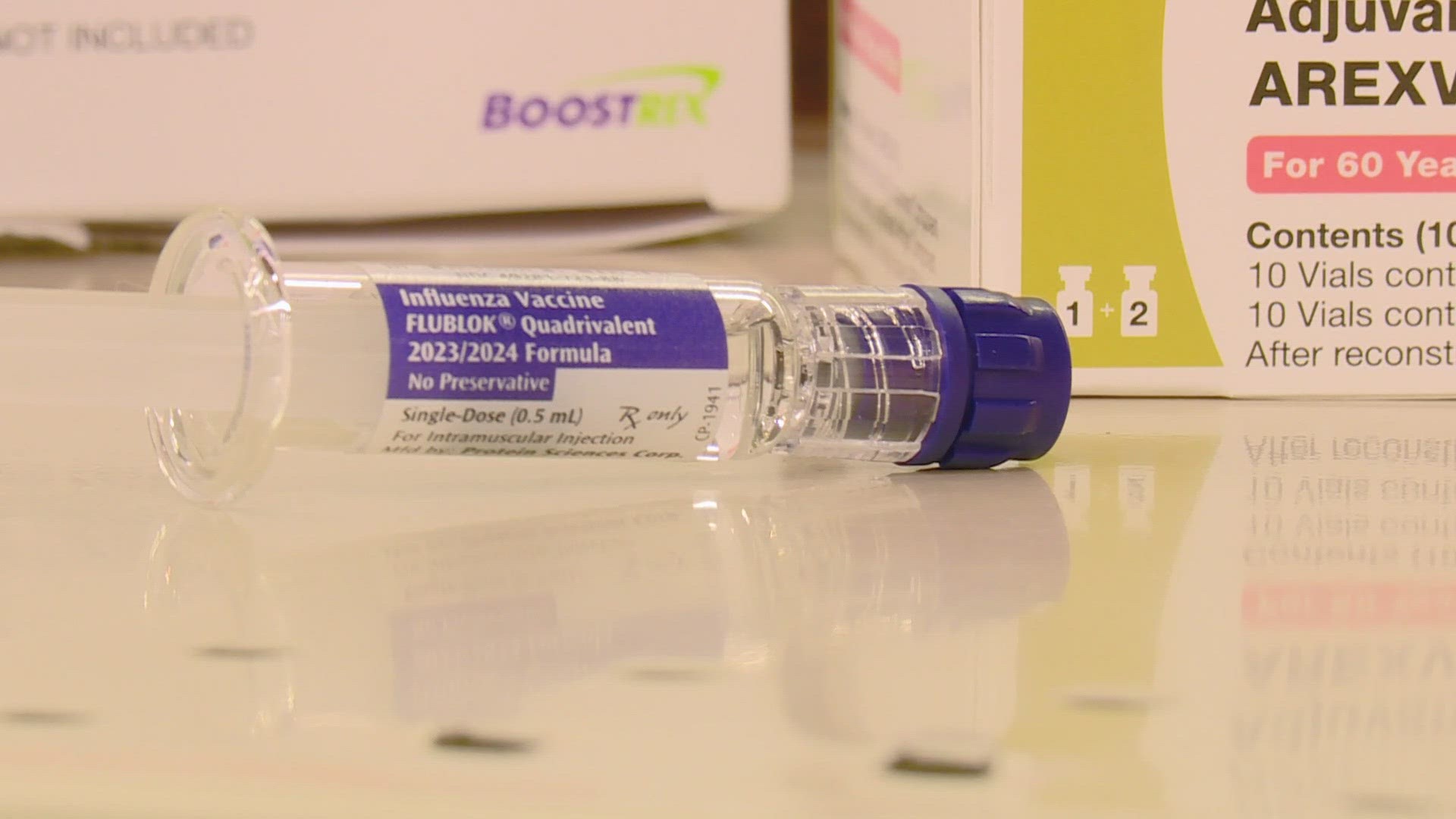DENVER — With a new COVID booster out and flu season just around the corner, staff at Safeway pharmacies are working hard to meet demand.
"We are busy," said Amanda Wong, Director of Pharmacy at Safeway. "What we're seeing is definitely a steady increase in the folks interested to receive the updated COVID shot."
But while people are rolling up their sleeves for the latest COVID booster and flu shot, nationwide data from the CDC shows fewer pregnant people are getting the recommended immunizations.
"Yeah, I think it's been noticed across the country," said Dr. Anna Euser, an OBGYN and maternal and fetal medicine physician at UCHealth University of Colorado Hospital. "Since COVID, there was a lot of questioning of different therapies and treatments and a lot of questioning about the COVID vaccine with it being new technology. That has carried over unfortunately to questioning of other vaccines that we've used for much longer periods of time."
Euser said that immunization hesitation is something she's noticed, too.
"I think it is really easy to understand why pregnant women are concerned," Euser said.
Pregnant people are encouraged to get the flu shot, the latest COVID booster, Tdap to protect their child from whooping cough, and now, the newly approved RSV vaccine.
"We are recommending these four vaccines for all pregnant women going into this season,” Euser said.
Euser said the urge for people to be protective of themselves and their babies at a time of information overload is understandable.
"Pregnant women have a flood of information that they're trying to navigate, between should they eat sushi, should they not eat sushi, is that cheese okay, is that cheese not okay, what medicines can they take, what medicines can't they take," Euser said. "It can be overwhelming, but opening the line of communication with your provider to make sure you're having those conversations versus just saying 'no' out of fear or 'no' out of lack of information."
Euser said anyone with questions should talk to their physician. They can share information and address concerns or risk factors, as well as helping the patient better understand how these shots can help them and their little one down the road.
"All of these vaccines are to protect the mother and the baby," Euser said.
SUGGESTED VIDEOS: Latest from 9NEWS

